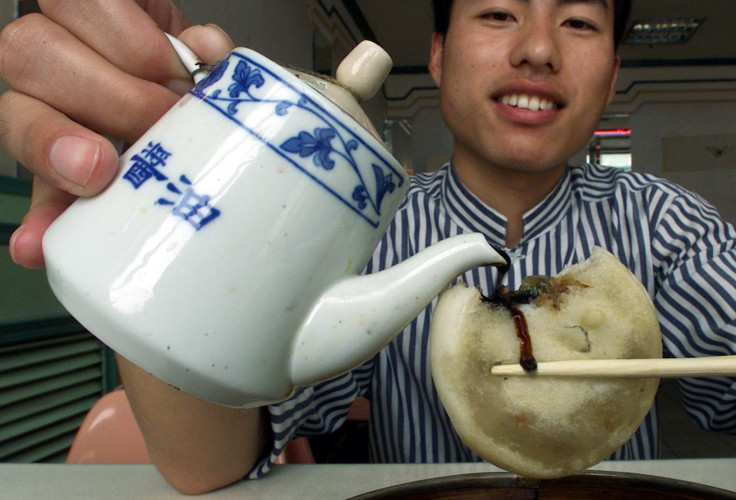WHO And Scientists Work To Fortify Condiments, Seasonings In Areas With Nutrient Deficiencies

The way to a country’s health could be through its condiments. A new effort from the World Health Organization (WHO), alongside two scientists from the University of Illinois, involves fortifying many of the developing countries’ favorite condiments and seasonings in a bid to inject some nutrition into foods they frequently consume.
Imagine dipping your French fries in a glob of ketchup that’s been boosted with iron and vitamin A. Or maybe the oil and vinegar on your sandwich contain folic acid and zinc. Of course, we in America don’t suffer from micronutrient deficiencies to the extent other countries do, which is why Luis A. Mejia and Allyson Bower are instead bringing these essential vitamins and minerals to soy sauce in China, for example, or to curry powder in India.
"In some countries where these deficiencies are widespread, there is consistent use — almost a daily dose — of certain condiments and seasonings,” said Mejia, an adjunct professor in food science and human nutrition, in a statement.
The problem isn’t confined to one income bracket. Andy Warhol once said the best thing about Coca-Cola is that it’s democratic: “A Coke is a Coke and no amount of money can get you a better Coke than the one the bum on the corner is drinking.” The same holds true for condiments. Soy sauce is accessible, and it doesn’t discriminate among palates. This gives organizations like WHO a tremendous amount of responsibility because it means the solution is vast and simple, and therefore necessary.
The method has already shown success with table salt and iodine. In 1990, less than 20 percent of all households were consuming iodized salt over the standard plain variety. The U.S. was lucky enough to have iodized salt, a so-called “functional food,” since 1924 when scientist David Marine first launched the goiter prevention program. But other countries have not fared so well. An absence of iodine in the diets of many developing countries has led to sweeping mental retardation and complications with childbirth.
In 2007, Kul Gautam, then-deputy executive director of UNICEF, spoke out on the terrible dangers of Iodine Deficiency Disorder. “Even a moderate deficiency, especially in pregnant women and infants,” he said, “lowers their intelligence by 10 to 15 IQ points, with incalculable damage to social and economic development of nations and communities.”
What David Marine recognized in 1924, the rest of the world eventually adopted. Salt became the conduit through which people consumed their daily helping of iodine. By 2008, UNICEF estimated, 72 percent of households in developing countries had begun using iodized salt, and the number of countries suffering from rampant IDD dropped from 110 to 47.
"Just as iodine deficiency has been controlled for many years in the U.S. through salt fortification,” said Bower, “we now hope to offer a framework to enrich foods with iron, vitamin A, and other micronutrients in the developing world.”
The greatest hotspots are in Southeast Asia, specifically in the Philippines, Thailand, Malaysia, Vietnam, and Indonesia. They also crop up in West Africa and in Central America. Mejia and Bower hope to bring fortified sugar to Guatemala, soy and fish sauces to Asia, bouillon cubes to West Africa, and curry powder to India and Pakistan.
Their greatest hurdle in bringing micronutrients to these countries is a legal one. Anytime a health organization wants to start manipulating a country’s food supply, governments are likely to bristle. The team hopes this resistance is only kneejerk.
Mejia and Bower will present their recommendations to a WHO meeting in New York in the coming days alongside several other colleagues. They say they’re confident the argument for greater fortification will be heard, in large part because of WHO’s reputation, which the researchers hope to wield as they venture out to various corners of the globe.
For example, Vietnam has a soy sauce fortification program. Indonesia doesn’t. “Indonesia does have regulations that allow fortification of wheat flour, margarine, and rice,” Mejia says, “but not condiments. So we can tell WHO that the legal framework is present in Indonesia and recommend that the organization expand its efforts there.”



























